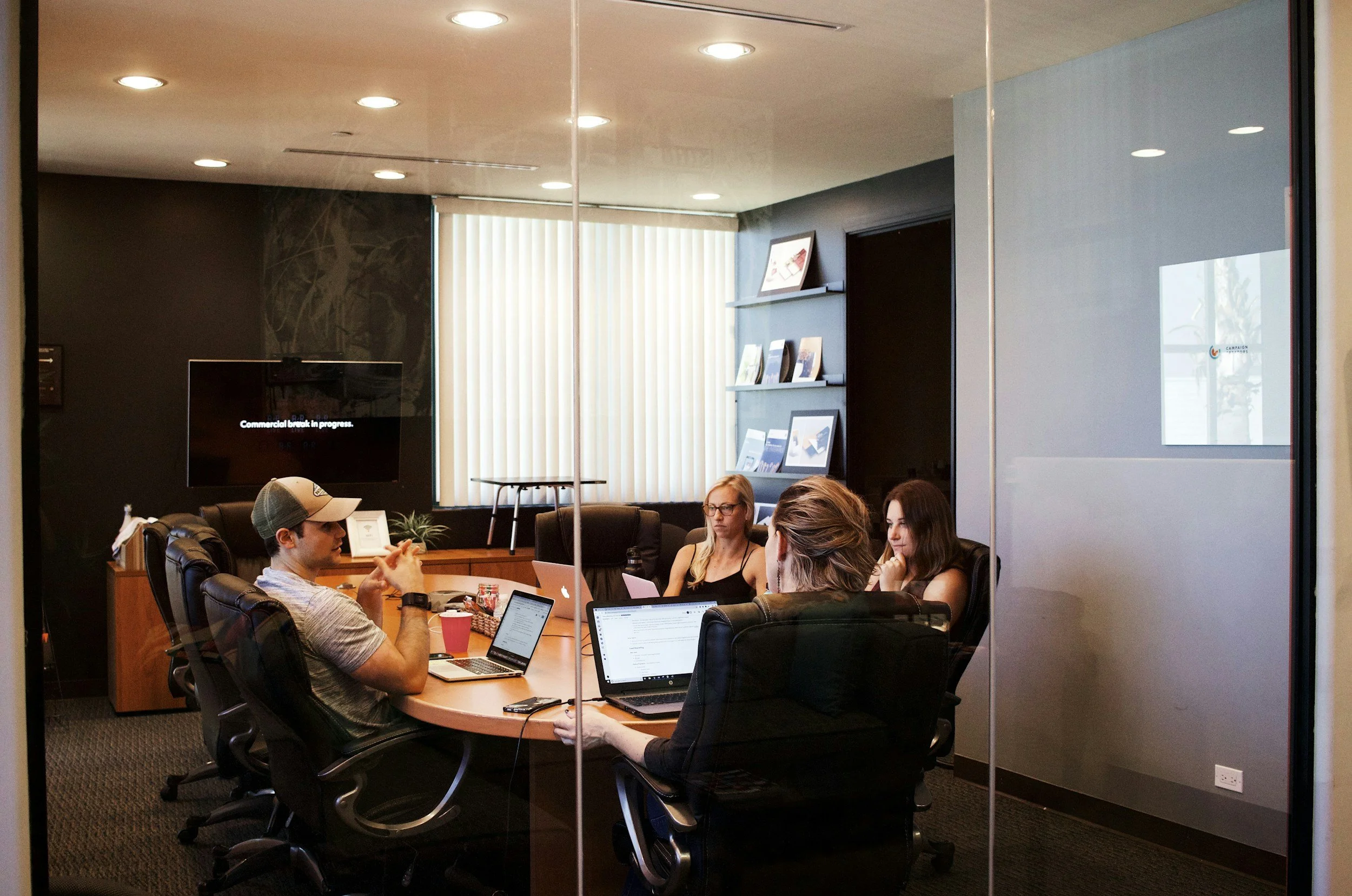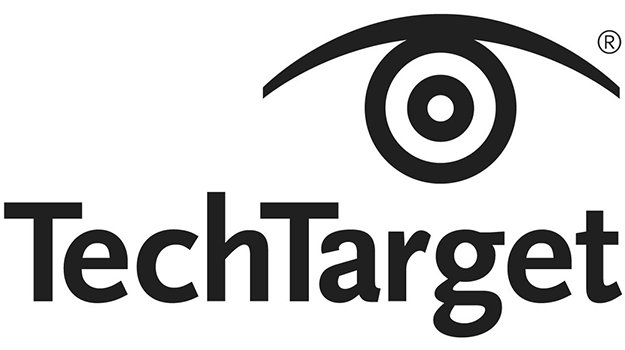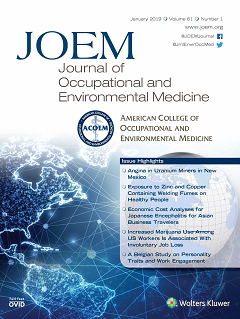
Do You Spend Too Much Time in Meetings?
Get help from the world’s leading scientific expert on workplace meetings.
Running Effective Meetings for Dummies is out now!
An Expert, You Say?
Believe me, I don’t use that word lightly! I love studying meetings — and as it turns out, there wasn’t a lot of scientific data on meetings when I started my career.
I am now a Professor of Industrial and Organizational (I/O) Psychology at the University of Utah, and direct the Center for Meeting Effectiveness housed in the Rocky Mountain Center for Occupational and Environmental Health.
I have more than 240 publications in academic outlets, and many works in progress for a number of journals.
I have presented more than 335 papers/posters at regional and national conferences, and given more than 100 talks at academic and non-academic settings in the U.S., France, the Netherlands, Germany, Switzerland, and in more than 100 other countries via live-stream.
I have written 7 books, and serve as a reviewer for various journals, including the Journal of Organizational Behavior, Organizational Behavior and Human Decision Processes, Journal of Creative Behavior, and Academy of Management Journal.
My work has garnered a number of awards and honors, including being nominated and selected as a Society for Industrial and Organizational Psychology (SIOP) Fellow in 2020.
I am an Editorial Board Member for the Journal of Business and Psychology, European Journal of Work and Organizational Psychology, Small Group Research, Journal of Community Psychology, and Organizational Psychology Review. I also sit on the Advisory board of several start-up companies, including MeetingScience and H2HI (Human to Human Interaction).
I have consulted for more than 500 non-profit and for-profit organizations, including animal welfare organizations, human services organizations, large corporations, government entities, emergency safety and intelligence agencies, as well as retail conglomerates and external talent management firms.
My research has attracted internal and external grant funding of more than $20 million since 2010.
Joseph A. Allen, Ph.D.
Main Areas of Expertise
Workplace Meetings
Organizational Community Engagement
Occupational Safety and Health
I Spend My Life in Meetings…So You Don’t Have To.
Joe Literally Wrote the Book on Meeting Science.
He has written 25% of all existing scientific research on meetings in the world.
The Solutions that Joe Offers are Based on Data.
Joe is a scientist first; his work is based on data and experience working with over 500 organizations.
Find Out Why Joe’s Work is Award-Winning.
Learn more about working with Joe, inviting him to speak, or check out the books featuring his research.
Joe’s Work Has Been Featured In
Recent Peer-Reviewed Journal Articles
Lubstorf, S., Allen, J. A., Eden, E., Kramer, W., Baak, M., Reiter-Palmon, R., & Lehmann-Willenbrock, N. (2023). Digging into “Zoom Fatigue”: A Qualitative Exploration of Remote Work Challenges and Virtual Meeting Stressors. Merits, 3(1), 151-166. DOI: 10.3390/merits3010010.
Purpose: With the onset of the COVID-19 pandemic, employees suddenly had to work remotely and realize all work-related social interaction in virtual formats. The sudden shift to the virtual format came with new workplace stressors. To understand the stressors of remote work and videoconferences, we present two qualitative studies. The aim of this study is to better understand the stress associated with remote work and videoconferencing, with an emphasis on how workers cope with the added stress. Methodology: We applied thematic analysis to open-ended survey data from employees in the US (n = 349) and in-depth telephone interviews of 50 meeting leaders from the US and Germany. Findings: We identified the work–home interface, technology, and communication issues as key challenges of remote work. Further, we found camera usage, early meeting phases, and multitasking to be central stressors of videoconferences. Finally, we identified individual- and team-level coping strategies to reduce the impacts of virtual meeting stressors on employees. Originality: Our research contributes to the emerging field studying the effects of virtual work and videoconferences on employees. We provide an overview of the challenges of remote work at the early stages of the pandemic, and we present an overview of the stressors that emerge in virtual meeting environments. We discuss insights into why videoconferences may fatigue employees. Including German and US samples, our research allows a cross-cultural comparison of videoconferencing stressors. Finally, we present actionable practical recommendations to improve videoconferences.
Allen, J. A., & Lehmann-Willenbrock, N. (2023). Story-Telling, Well-Organized, or Solution-Focused Meeting? Investigation of Behavior-Based Group Profiles and Performance. Small Group Research, 0(0). https://doi.org/10.1177/10464964231182098.
Insights into the behavioral profile of groups during meetings help us understand why some groups outperform others on meeting and work tasks. The presented studies investigate behavior-based group profiles in meetings and their relation to group performance. A total of 101 problem-solving meetings took place in two studies in a laboratory setting; data were coded using the act4teams coding scheme and analyzed using INTERACT software. The findings indicate there are four distinct group profile clusters: story-telling, well-organized networking, solution-focused, and problem-focused profiles. These behavior-based group profiles were meaningfully and differentially linked to group performance in the context of a meeting task.
*Castro, K. C., Fisher, A. B., Geczik, A. M., Boyer, S. L., Resick, C. J., Lee, J., Davis, L. A., Taylor, J. A., Allen, J. A. (2023). By nature, we’re doers and problem solvers: Evolving Job Demands and Resources in response to COVID-19 among US-based Fire Service Personnel (The RAPID Study II). Journal of Occupational and Environmental Medicine, 65(4), e195-e203. DOI: 10.1097/JOM.0000000000002808.
Objective: The US fire service experienced increased demands due to COVID-19. This qualitative study explored the pandemic's impact on work-life balance and safety.
Methods: Five interviews and 10 focus groups were conducted with 15 fire departments in the COVID-19 RAPID Mental Health Assessment. Coding and multilevel content analysis were conducted in NVivo.
Results: Four department support themes were identified: emotional/social (33.1%), policy (28.4%), instrumental (22.9%), and informational (15.5%). Four work-life balance themes were identified: life (51.2%), children (18.1%), physiological (16.5%), and work (14.2%). We observed more departmental resources to help mitigate job demands within the work environment compared with those for work-life demands.
Conclusions: Job resources are needed to mitigate demands and improve safety culture and mental well-being of the fire service under normal conditions, and for the next pandemic, natural disaster, or long-term emergency.



























